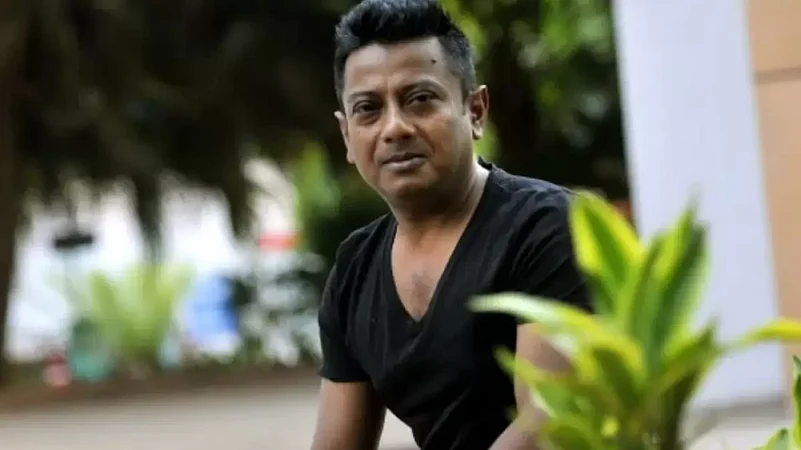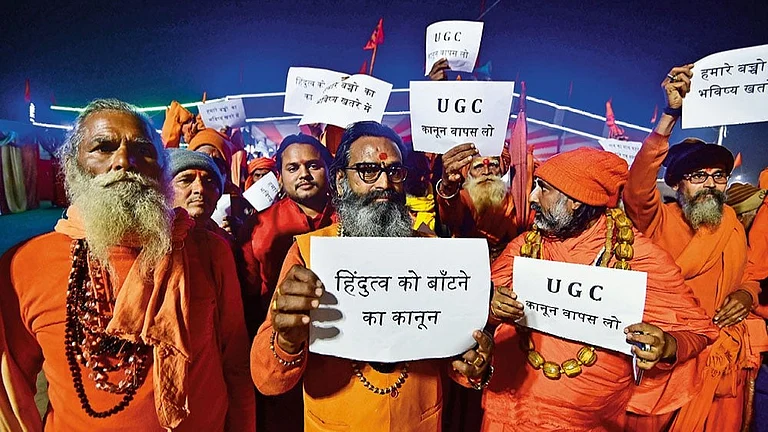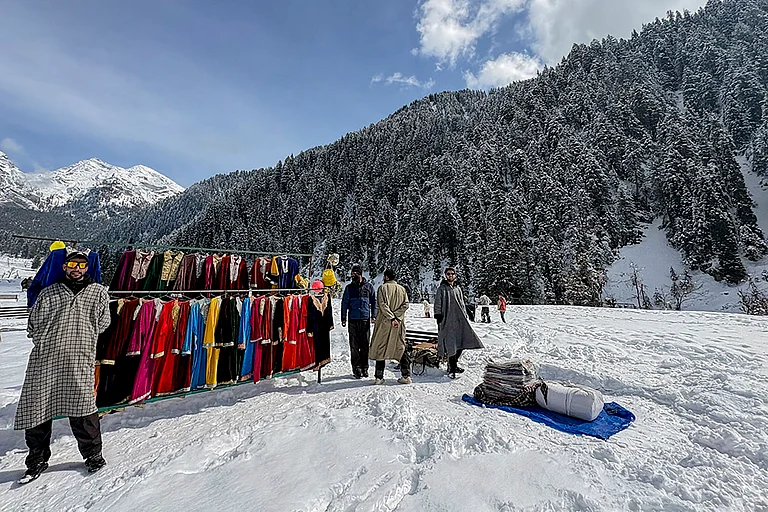Writer-director Onir says streamers and production studios are yet to approach him for projects that explore gay or queer narratives that go beyond their acceptance in the heteronormative community.
As a result, the filmmaker -- who is openly gay and an LGBTQ rights activist -- said films about the community often end up being presented through a cisgendered lens.
"I always wonder what is preventing platforms or studios when they are reaching out to cisgendered filmmakers to tell our stories... how come no one comes to me? Are they threatened or do they think he is too gay? What is too gay? Have you ever heard someone say he is too straight? I find there is this silent homophobia..." Onir told PTI in an interview.
"There is also Shridhar (Rangayan), an out-and-out gay filmmaker who also heads KASHISH Mumbai International Queer Film Festival... How come we are not getting empowered to tell our stories? Why is every platform making queer narratives with closeted people? I think there is a problem," he added.
The National Award winner, known for critically acclaimed films such as "My Brother... Nikhil", "Bas Ek Pal" and "I Am", also said having people from the community as part of the writers room was not the answer to the issue.
"I feel just because you're gay that doesn't make you a script consultant or entitled for the right discourse. It's important to understand filmmaking and scriptwriting, something you cannot become an expert in. It's not just about dialogues.
"And, just because you're queer it doesn't make you aware of queer politics because very often women also make films where portrayal of women is extremely problematic," he argued.
There has always been constant conversation about how a community -- be it women or LGBTQ -- must be represented both on screen and off screen by their members, said the Bhutan-born director.
"There have been wonderful male filmmakers who have made films about women. But there has always been talk that it's important to have women behind the camera telling their stories because the way women look at women and stories is different.
"Similarly, of course, I would welcome any member from the cisgender community making with our narrative. But it's important (for the LGBTQ community to showcase their narrative) because our gaze has not been seen, ever. It's important at this stage to have us telling our stories also," he added.
Even the films and web series on the LGBTQ community that are produced today, Onir said, tend to revolve around the heteronormative community accepting "the other".
"It's about their acceptance. Have you ever seen a film where a gay man is trying to accept (the cisgenders)? No. That's taken for granted. As a filmmaker also, they are learning. If you're still learning, you're not evolved enough to tell my stories because nobody taught us how to accept you. We accepted, it's simple humanity," he observed.
53-year-old filmmaker said there are times when he misses director Rituparno Ghosh, who took contemporary Bengali cinema to greater heights. Ghosh, who died at the age of 49 following a heart attack in 2013, was also one of the openly homosexual personalities in Indian cinema.
"I miss his presence in Indian cinema because there was a queer gaze to his work. I've been seeing a lot of short films which come to the KASHISH. They are very empowering because they are told by queer people and they are again various kinds of stories which go beyond acceptance," he added.
Going forward, Onir said he wants to make films that "celebrate" the life of the LGBTQ people and his upcoming film "Pine Cone", fronted by newcomer and queer actor Vidur Sethi, is a step in the right direction.
Celebration of life, he said, means both happiness and sorrow where the story is not about being accepted by the society.
"It's beyond that where you are not dealing with accepting yourself or being accepted... (It's about) where you are leading your life like everyone else dealing with challenges, exploring relationships, love, heartbreaks... so it will have joy, sorrow, everything together and I feel that is what life is.
"We need to move beyond stories where it's all about being accepted as if almost our life depends on that. While being accepted is important, it's way beyond that because we are living, we have a life. We have stories, and that needs to be told," the director said.
Onir, co-authored “I Am Onir and I Am Gay: A Memoir” with his sister Irene Dhar Malik, also touched upon the story behind the book's title.
"Some people were suggesting it should be just 'I am Onir' because my identity is much beyond my sexual orientation.
"But One also realised that in a country where so many people are still not being able to come out with their identity or are being made to feel ashamed maybe it's important to reaffirm that it's ok. That you can just be, say 'I'm gay' and celebrate yourself. That kind of convinced me that it (the title) empowers many more people who are still struggling to say 'I'm gay'," he said.
The director recently took part in the Jaipur Literature Festival.


























